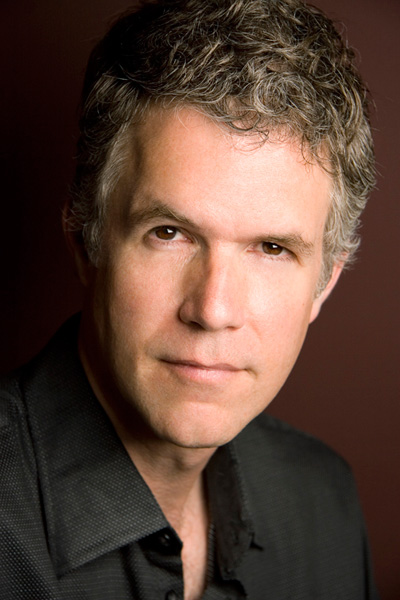
 Well, it’s all over but the tux-rental (or overalls-rental, depending on your awards show dressing style). The 2012 IBMA Awards nominees have been announced, and the countdown to the awards show has begun (note: if you’re actually counting down to the day of the show, you need to get out more).
Well, it’s all over but the tux-rental (or overalls-rental, depending on your awards show dressing style). The 2012 IBMA Awards nominees have been announced, and the countdown to the awards show has begun (note: if you’re actually counting down to the day of the show, you need to get out more).
For some nominees, the prospect of delivering an acceptance speech fills them with dread, and they’d almost rather not win the award for that reason. And, to be honest, there’s some justification for the dread. It seems like a simple enough process, right? Go up on a stage, thank a few people, have a trophy handed to you by a pretty girl who tries to make it clear to you which way to exit. What could go wrong?
Quite a lot, it turns out.
The trouble starts when people decide to make their acceptance speech stand out among all other speeches as “unique” and “special.” This is usually achieved, but not always in the way it was intended.
Maybe it’s because we don’t have a televised show, or because we don’t have artists self-important enough to think they have the ability to change the world in their two-minute speech, but the IBMA Awards show is generally free from political statements and grandstanding. Let’s hope this trend continues, because unlike in Hollywood, or in the country music business, the IBMA membership has very diverse political views, so virtually any statement of a political nature is guaranteed to offend and/or alienate between 40 and 60% of the audience.
Still there have been lots of other ways of messing up acceptance speeches, all of which can be easily avoided by sticking with a few simple guidelines:
Be prepared: Even if you consider your chances of winning to be virtually nil, there’s nothing wrong with making a few notes ahead of time. You can jot down everything you would want to say, or just list the people you want to thank (more on the “thank you list” below). It should be noted, though, that if you’re going to pull notes out on stage, it’s best to dispense with the self-deprecating “I don’t know what to say! I was completely unprepared for this!” (rustling two pages of notes)
Avoid negative comments about the award you just won: Without meaning to, Jerry Douglas once demonstrated how this can go horribly wrong, and he found himself in the position of having to do damage control, a position nobody wants to be in after a speech. Fortunately for him, in another year, he delivered one of the best lines ever at an IBMA awards show: “I yield the balance of my time to Jimmy Martin.” (It was the year Jimmy was inducted into the hall of fame, and his speech was still to come). Even Jimmy thought it was funny, and he also used every bit of Jerry’s extra time.
Don’t explain why you won the award: “In the past year some amazing things have been happening in my career: I recorded two projects with Taylor Swift and the Dalai Lama . . . etc.” You’ve already won, so attempting to justify it either sounds like you’re insecure about winning the award, or you’re just doing some additional bragging.
Keep other self-promotion to a minimum: Think about it: What better form of self-promotion can there be than winning and accepting an award in front of a huge live audience of your peers, the industry’s top professionals, and an international satellite radio audience? Taking it as an opportunity to plug your new single, your web site, or your new sugar-free bubble gum sponsorship deal is overkill at best.
Also, your speech will be rebroadcast at various times on satellite radio and on terrestrial radio, so avoid time references, like plugging an upcoming show (speaking of overkill): “Thanks you all so much. Come on out and see us this Saturday night at Larry’s Barbeque in Kingston Springs!”
Be brief: This is a big one, and often the hardest to achieve. There’s no need to rush or skip over people that should be thanked, but there is a happy medium between “Uh . . . like, thanks and everything,” and thanking everyone you’ve ever met, giving your life history with a discussion of your mentors and influences (Carter Stanley, John Coltrane, and Gene Pitney), five minutes of profuse weeping, followed by a description of exactly where you were and what you were doing the first time you heard The Salty Dog Blues.
I think one of the reasons that people stay up at the podium too long is that they secretly believe this may be the last award they’ll ever win in their lives. There’s no need to be so pessimistic, and one thing you don’t want to do is make the audience hope that it’s the last award you ever win.
Being concise in your acceptance speech doesn’t mean that it has to be emotionless. People are moved by genuine displays of emotion, even from people who have won the same award in the past. If the emotions seem staged, or exaggerated (e.g.rolling on the floor, screaming “Thank you, Bill Monroe! Thank you, Bill Monroe!”), they may be less moved, but some of the IBMA awards’ finest moments have come from people who are too choked up to speak.
Limit Your Thanks: There’s no doubt that the “thank you” list is tricky. You’re understandably concerned about leaving important people out. The solution of course goes back to the point about being prepared, above. Just make a list.
With a list, though, comes some important decisions: will you keep it small? Just family, and one or two people who were important to your career in the past year (record label, manager, etc.)? Or will it be a bigger list? This is okay, within reason (“. . and I want to thank little Louise McIntyre for holding my hand when we were 11,” could probably be left out), but once you widen the list, you also increase the chances of leaving someone out of that wider list. If you thank your booking agent, will your manager feel excluded? If you thank your fiddle-playing dentist, will your banjo-playing internist feel slighted? If you thank your first ex-wife, will your . . . Okay, best to avoid that one altogether.
This is why smaller is better: there are fewer people in that category of importance to you, and therefore you have less chance of omitting someone. This comes with a warning, though: if you leave someone important off of the smaller list, you’ll be in bigger trouble.
First and foremost, if you’re married, do not forget your spouse, or you may find yourself thanking your first ex next year after all. Of course you don’t think you would, but the brain can get cloudy in the moment, though, so just to be safe, write it on the top of your list, no matter how stupid you may feel having to do it.
If the award is related to a recording, thank the producer (if you’re still on speaking terms after the recording). And if you’re with a record label, thank the label. If you’re worried about leaving someone out there, “all the folks at Figwart Records” will suffice (please use the name of your own record label, and don’t copy this verbatim).
So there it is. Everyone else is optional on your list. If you can manage to get up to the stage, thank the IBMA for the award, thank a few people that are important to you, and avoid burping or dropping the trophy, you will have had a good moment in your career.




